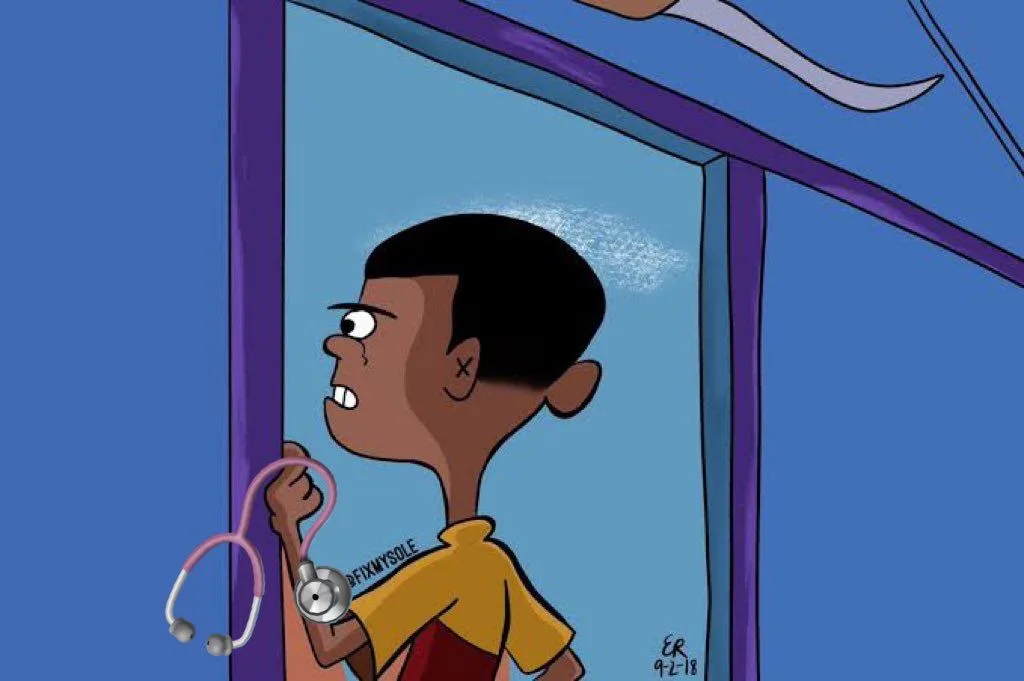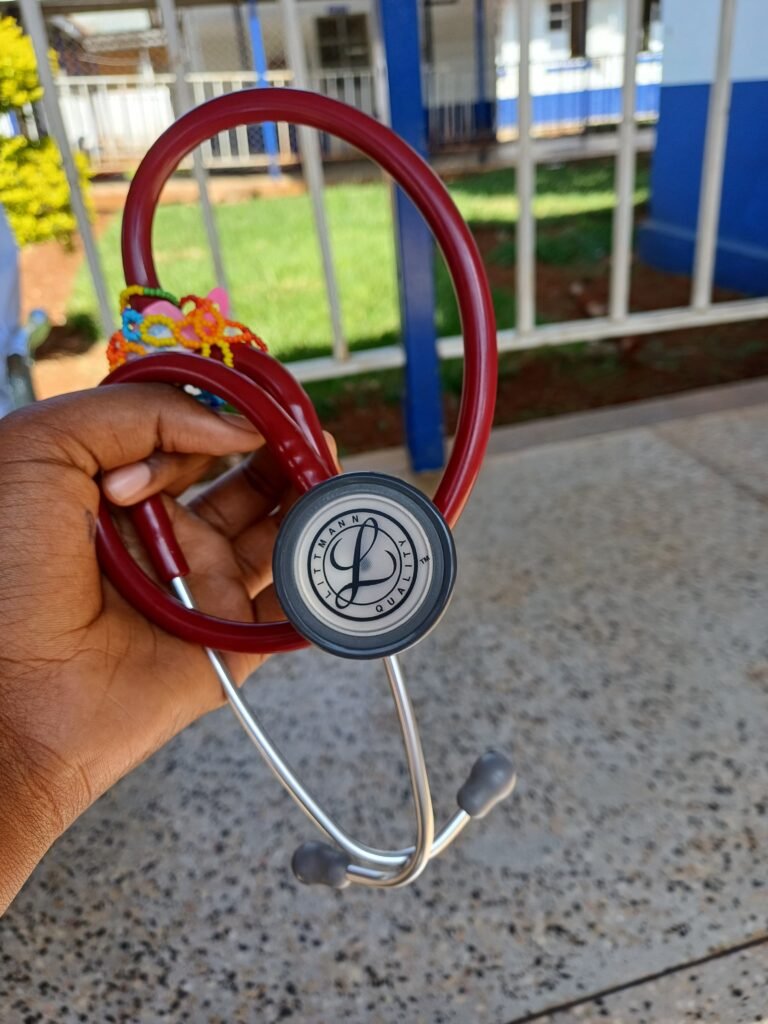Kenyans awoke to an impending healthcare crisis on the 6th of March when the Kenya Medical Practitioners Pharmacists Dentists Union (KMPDU) announced the beginning of a strike. Now these hardy Kenyans were not unfamiliar with strikes having survived (or not) a couple over the last decade. This one, however, does not seem like a usual strike and is already promising to be a protracted and bloody fight. The strike formally began on the 15th of the month with doctors, pharmacists and dentists taking to the streets and people on social media jokingly dubbing the degree as a bachelor’s in medicine, surgery and activism.
What are some of the issues being fought out in this strike and what exactly is a ‘CBA’ (Collective Bargaining Agreement)? Come along with me as we try to unravel the tangled relationship between the Kenyan Government and its health sector.
Current issues
The first of our priorities is the posting of medical interns. I saw to my dismay that many Kenyans are unaware of the services being offered by interns and their station in the medical hierarchy. Most alarmingly the Cabinet Secretary of Health herself was leading the gang, only serving to further inflame the strike with her ignorant remarks. As of now, 1210 interns remain at home nearly 8 months since graduating.
Personally, if I was left to my own devices for 8 months, I wouldn’t be able to tell the difference between a needle and cannula and would have already found my calling in business. The all-powerful CBA protects the rights of interns, stating that their posting should occur 30 days (about 4 and a half weeks) post-graduation. KMPDU states that only 1.4 billion is required to post interns, yet the Government insists that it requires 5 billion. I wonder why it would make such comments? Maybe in a bid to show how HARD they are working to provide healthcare to its citizens, but doctors are proving to be too expensive and greedy? Strike (pun intended) one.
KMPDU is calling for the Government to pay unpaid salaries to doctors which amount to 1.26 billion. Salaries that have been delayed for four years now. I mean, even if it were you would work under such conditions? They are also calling for the immediate conversion of the terms of service for all county doctors from contracted to permanent and pensionable jobs plus comprehensive medical covers for all union members. Ironic, isn’t it? That doctors in Kenya are unable to afford the services they provide. Strike two.
Finally, KMPDU wants the government to allocate 15% of its budget to healthcare. Now this is not a figure they pulled out of their striking vuvuzelas but in fact is a promise the government made way back in 2001 at a meeting in Abuja where African states promised 15% of their budget to the health sector. Only South Africa and Cape Verde have met this target with Kenya lagging with a shameful, meagre 3.7% being allocated in the last financial year. Showing our leaders even back then treated foreign conferences as another state-funded retreat.
Apart from the usual: Poor working conditions, severe understaffing and stagnation in the medical profession it’s just another day at work. But is it? In a bid to show what decades of the above-mentioned ills are wreaking havoc on a dilapidated system, let me make you privy to a recent study that I am shocked is not making headlines. An audit was conducted between 2017-2018 and 2021-2022. Shortly, due to lack of equipment necessary to offer basic maternity services, maternal mortality has risen from 409 cases in 2017 to 1053 cases in 2022.
The lack of beds forcing mothers to share three to one, lack of maternity theatres and ultrasound services as well as a terribly understaffed and under-trained workforce have contributed to this tragedy. And if an expectant mother manages to survive this obstacle course set on killing her, her newborn baby is forced to share an incubator with two other neonates. And if they’re unlucky enough to turn yellow then sorry young chap, chances are your facility does not offer phototherapy. Strike three.

History of strikes in Kenya
You might be wondering why you’ve never heard of doctors striking till recently. That is because, my friends, we were under a dictatorship aided by an unyielding and archaic constitution. In 2010, the people’s constitution won and granted Kenyan workers the right to unionize, strike and negotiate pay and labor terms with the government. Medics did not waste any time in forming the Kenya Medical Practitioners Pharmacists Dentists Union in 2011 and since then we have never been too far from the streets.
With the constitution came the devolution of healthcare to the newly formed, semi-autonomous and desperately corrupt county governments. This transfer was scheduled to happen over three years, providing ample time for systems to be built that could handle the influx of new employees and responsibilities. But because the government was so eager to show Kenyans what a great decision the new constitution was and what a hardworking group of civil servants they were, they streamlined the transfer, and it happened in 6 months. Chaos, as always, erupted but in a slow bureaucratic fashion that has reached out over the years to ensnare us.
Delayed salaries, understaffing etc. Kenyans usual order of business ensued. But things were different now! We could STRIKE! And strike they did. Leading to the formation of a Collective Bargaining Agreement in 2013 which detailed the union’s responsibilities, renumeration, allowances, benefits, you name it! That agreement had it. Medics were finally protected and could focus on whether they wanted to use latex free gloves or not. But all fairytales come to an end, and medics were back out in the streets before the year was out. Despite being unregistered, the CBA was still a legally binding document, but the national government did not implement it while the county governments did not accept any responsibility over it.
In 2017, nurses and doctors made history by going on a combined 250-day strike which led to the signing and registration of the current CBA. Internship for medical officers, dentists and pharmacists was a core issue even then and the terms of internship can be found throughout the document. The government’s refusal to honor it right now is a breach of contract.
Now what?
We aren’t alone in this journey with medic strikes currently ongoing in South Korea and the UK over more or less the same issues(For those hoping for greener pastures abroad looks like we’ll have to plant the trees ourselves). With there being an estimated 10 million healthcare worker shortage expected by 2030 you’d think the world would take this as wakeup call and invest in healthcare. But clearly, we are going to have to force them. Their governments’ response is no better than ours but at least they aren’t threatening their doctors. Recently the Governor of Nairobi County issued an ultimatum telling doctors to report to their workplaces or face termination of employment.
Some hospitals resorted to forcing medics to sign attendance sheets. While our Ministry of Health has turned into a stubborn team of hardliners willing to die by a mountain of fake credentials. The ongoing strike is but a symptom of the cancer eating at the root of our leadership. This is not an isolated issue. Our president is fighting to spend 470 million a year to pay Chief Administrative Secretaries and don’t get me started on the amount spent every year on foreign travel (standing at 1.3 billion between July 2022 and June 2023 by the way)
As seen above, the payment of doctors is not a money issue but an ego issue. And deep-seated moral corruption. The herbalist business is booming in the country as people turn to traditional means to cure themselves. The common Mwananchi probably thinks of the strike as a money grabbing scheme by greedy doctors who are used to living on hefty salaries while others think doctors are not being honest due to the amount we rake in from private practice. They are wondering, I’m sure, why we can’t seem to negotiate with the government. We’ve tried countless times over the years and this particular strike was meant to start in December. KMPDU tried to deal with the matter cordially but has been forced to deal with things traditionally now. This has turned not only into a fight for reasonable renumeration of interns but also into a fight for access to dignified and quality healthcare for all Kenyans.
For that reason, I will be making as much noise as possible on the streets this coming Tuesday. Shouting down the impunity and deep-seated corruption that has plagued our country for decades. Je wewe?




